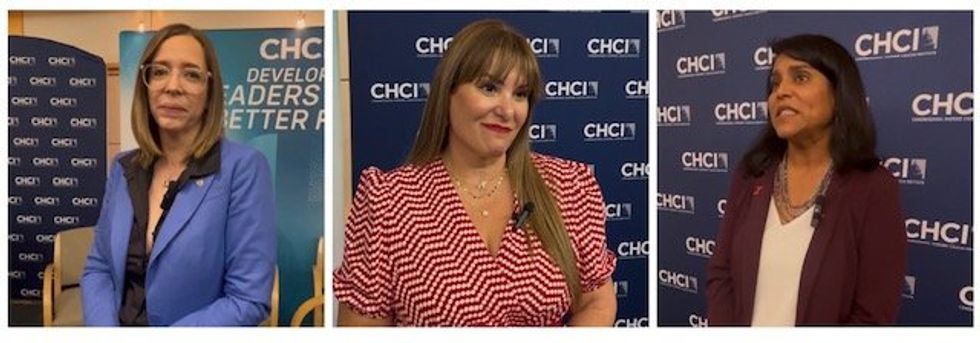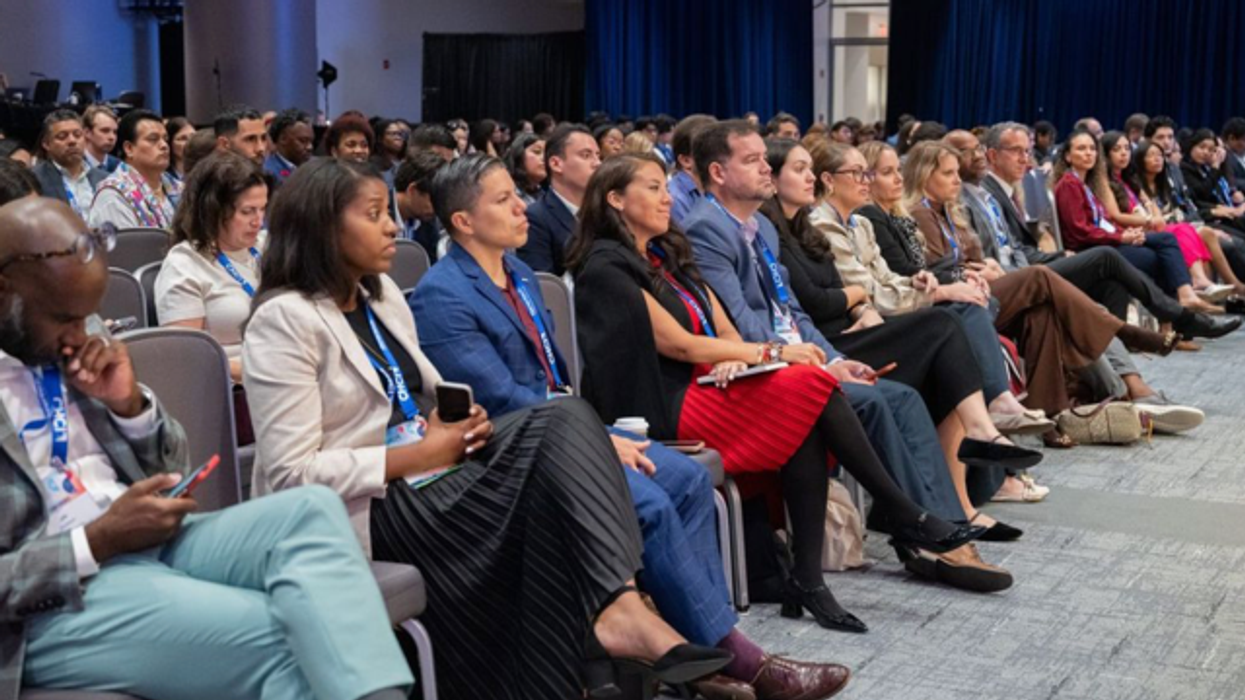At the 2025 Congressional Hispanic Caucus Institute CHCI Leadership Conference, Hugo Balta, Executive Editor of The Fulcrum, moderated a dynamic and deeply resonant panel titled Common Ground: Public-Private Partnerships Driving Community-Based Solutions. Held on Wednesday, September 17th, the session brought together three visionary leaders—Eneida Roman (We Are ALX), Nilda González (MMM Holdings, LLC), and Maya Lunnemann (Edward Jones)—to explore how cross-sector collaboration can catalyze equity, inclusion, and measurable impact in underserved communities.
Balta opened the conversation by inviting panelists to reflect on the initial spark that led their organizations to pursue public-private partnerships. Each speaker emphasized the urgency of unmet community needs—from health disparities to economic exclusion—and the realization that siloed efforts were insufficient to address these needs. The panelists agreed that authentic partnerships begin not with institutional agendas, but with listening to the community's voices. Roman described how We Are ALX centers Latino leadership by co-designing initiatives with local stakeholders, while González highlighted the importance of patient feedback in shaping Medicare Advantage programs. Lunnemann underscored Edward Jones’ commitment to embedding accessibility from the outset, not as a checkbox but as a core value.
 From left to right: Nilda González (MMM Holdings, LLC), Eneida Roman (We Are ALX), and Maya Lunnemann (Edward JonesCredit: Hugo Balta
From left to right: Nilda González (MMM Holdings, LLC), Eneida Roman (We Are ALX), and Maya Lunnemann (Edward JonesCredit: Hugo Balta
González shared how meaningful partnerships with the healthcare industry are essential at MMM Holdings for delivering culturally competent, high-quality care to Puerto Rico’s seniors. "By aligning public and private resources, we’re not just improving access—we’re building trust and driving outcomes that honor the dignity and diversity of our aging communities," she said.
In the “Strategy and Structure” portion, Balta pressed the panelists on the topic of accountability. Lunnemann described how Edward Jones utilizes internal scorecards and external audits to monitor progress toward its inclusion goals. "Public-private collaboration is really important because I see that's how progress is made," she said. "No individual person or institution can go at it alone if we want to make a true, lasting impact."
The conversation turned candid during “Challenges and Opportunities.” Roman acknowledged the friction that can arise when public and private interests diverge, especially around timelines and funding priorities. Her approach: persistent dialogue and shared metrics. "It is really important that we look at our commonality instead of our differences," she said. "We ask, 'What are you looking for, what do you need?' So that we can identify a common ground and work together."
In closing, Balta led the panelists through a conversation about policy recommendations that called for federal incentives to support culturally competent leadership pipelines, proposing state-level mandates for equity audits in healthcare partnerships, and recommending local ordinances that require accessibility benchmarks in all public-private initiatives.
The session underscored a powerful truth: when public and private sectors commit to shared values and community-centered design, they don’t just deliver services—they build trust, resilience, and lasting change.
CHCI brings together an unmatched network of community leaders—along with our top-tier, transformative programming—to build a pipeline of Latino talent ready to make a lasting impact in local communities, the halls of Congress, and corporate boardrooms.




















Trump & Hegseth gave Mark Kelly a huge 2028 gift